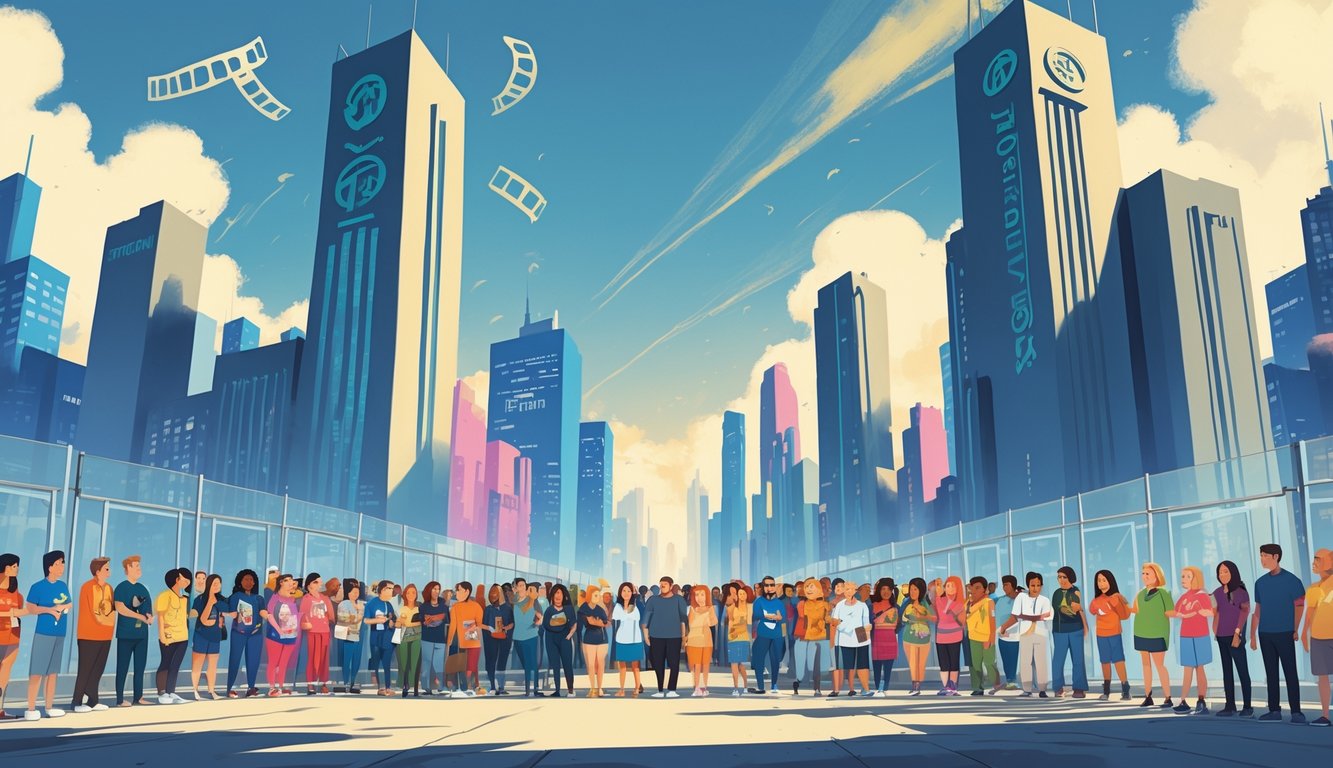
Determining Factors Behind Licensing Restrictions
Every time a show I like disappears, I get this weird déjà vu. I know it’s contracts and company politics, not some cosmic punishment, but it feels personal. Nostalgia doesn’t stand a chance against licensing terms and all those streaming turf wars. Your favorite series? Gone before you can even finish a rewatch.
Contractual Agreements And Rights
I’ve tried reading those contracts—seriously, why do lawyers write like that? It’s just layers of restrictions and weird clauses. Like those Pay-1 output deals (A24 and WBD, saw it on Variety), which decide who gets first crack at a show and even which country gets to see it. There’s always something sneaky, like those “non-theatrical window” things or exclusivity periods that make it impossible to just… watch a show.
And if rights are messy—like, say, two studios co-producing something niche? Forget about it. The release gets stuck for years. I imagine some exec losing it because someone forgot to define “digital platforms” in the contract. All these details decide if you get to binge on Peacock, Hulu, or some random international app. Fans just get less and less choice. Not exactly what I signed up for.
Studios’ Strategic Objectives
Studios aren’t picking platforms at random. Ever notice how Disney+ will quietly drop an old Marvel series, then suddenly it’s “coming soon to Hulu”? That’s not an accident. They want subscribers, but it’s also about flexing for market share. I remember hearing a CBS exec (Hollywood Reporter, 2023) say they pull library access just to mess with rivals during contract talks. It’s ugly. They call it “artificial scarcity”—really, it just means the exclusive platforms win and everyone else loses.
And then there’s the whole “fan-favorite” series bait-and-switch. Like, shelving old Star Trek stuff just as a new spinoff is about to drop. Even tiny licensing tweaks—just a bit more exclusivity—can mean millions in extra revenue. That’s what PwC analysts say, anyway. So the shows bounce around: Friends on Max, then Netflix UK, then who knows. It’s all about the math, not about making your life easier.
Audience Reactions And Fanbase Behavior
It’s wild—studios gatekeep a show and suddenly fans turn into this hyper-coordinated, slightly unhinged army. Fence off a hit, move a beloved series, and the internet just explodes. Sometimes I wonder if anyone at the top even checks Twitter, or if they just mute all the hashtags.
Social Media And Online Campaigns
Is it just me, or does Twitter/X go nuclear every time a licensing deal screws up a show’s availability? I scroll for five minutes and see hashtags like #SaveTheShow, #BringItBack, #NotMyStreamingService. Nobody agrees on anything, but you get TikTok edits, fan petitions, memes about how the licensing move is “betrayal.”
Kevin Westcott (Deloitte Insights, I think?) says fan communities online are the new backbone of engagement. So those change.org petitions with tens of thousands of signatures? Not a fluke. Discord watch parties pop up just to grieve a sudden geo-block. I keep seeing spreadsheets, people literally cataloging what’s available where. One time I heard, “If Bravo locks down, this whole subreddit will riot.” I believe it.
Emotional Investment And Fan Loyalty
People react in ways I don’t expect. When Brooklyn Nine-Nine switched networks, a friend of mine canceled her subscription out of spite. Apparently that’s a thing—Contrank’s case review says shows with lots of fan-made content (fan art, fic, YouTube rewinds) survive shake-ups better. It’s like, lose access, and fans go “fight or flight.”
But loyalty? It curdles fast. That same friend now refuses to buy any “Limited Edition” boxset. Can’t blame her. You build habits around these shows, then—bam—paywall, no warning. Dr. Emily Falk at UPenn (2023 study) actually found sudden disruption spikes stress. Sometimes the only thing keeping a fandom together is stubbornness. And, okay, I always think I’ll be chill next time, but nope, still mad.
Business Motivations For Limited Access
Every time I try to rewatch an old favorite (The Office, Friends, whatever), it’s locked behind a new app. It’s like the world’s worst scavenger hunt, except you pay for every clue. Studios just keep rearranging the pieces, chasing profit while fans just want to click “play.”
Exclusivity And Competitive Advantage
They call it “windowing.” I call it an endless game of keep-away. Remember when Warner Bros. Discovery’s Max bragged about hitting 150 million subscribers? (Zaslav, 2024 press call, for the nerds.) Every move is about shoving people toward a new subscription. Platforms snatch shows from each other, slap them on their banners, and pretend it’s a win for everyone. Spoiler: it’s not. HBO doubles down on DC and Harry Potter, Disney+ freaks out and loads up on Marvel. It’s a standoff, but with more monthly fees.
Nobody wants to share. Ever notice how, right before a new season drops, the old ones vanish or move? It’s almost like they want you to panic-subscribe. And for all the noise, it’s just the same viewers getting shuffled around, wallets lighter, “continue watching” lists reset. Studios care more about churn rates than, I don’t know, actual goodwill. My bank account feels it.
Revenue Streams And Monetization
Every content shuffle? Spreadsheet time. Sony ditched Netflix, then instantly signed with Disney for Pay-Two window releases (2022-2026, numbers are out there). Studios—NBCUniversal, Netflix, Amazon MGM—they all parade licensing deals to boost quarterly numbers, even if it means your favorite show is split across three apps.
It’s not about viewers. Nobody wants to bounce between platforms to finish one series. Instead, it’s exclusive windows, catalog rentals, temporary removals—anything to squeeze more money out of the same content. Licensing models always send stuff back to the highest bidder, so your favorite series just keeps vanishing and reappearing. If you’ve ever tried to keep a digital library, it’s a never-ending arms race. Fandom vs. licensing logic. Guess who wins.



